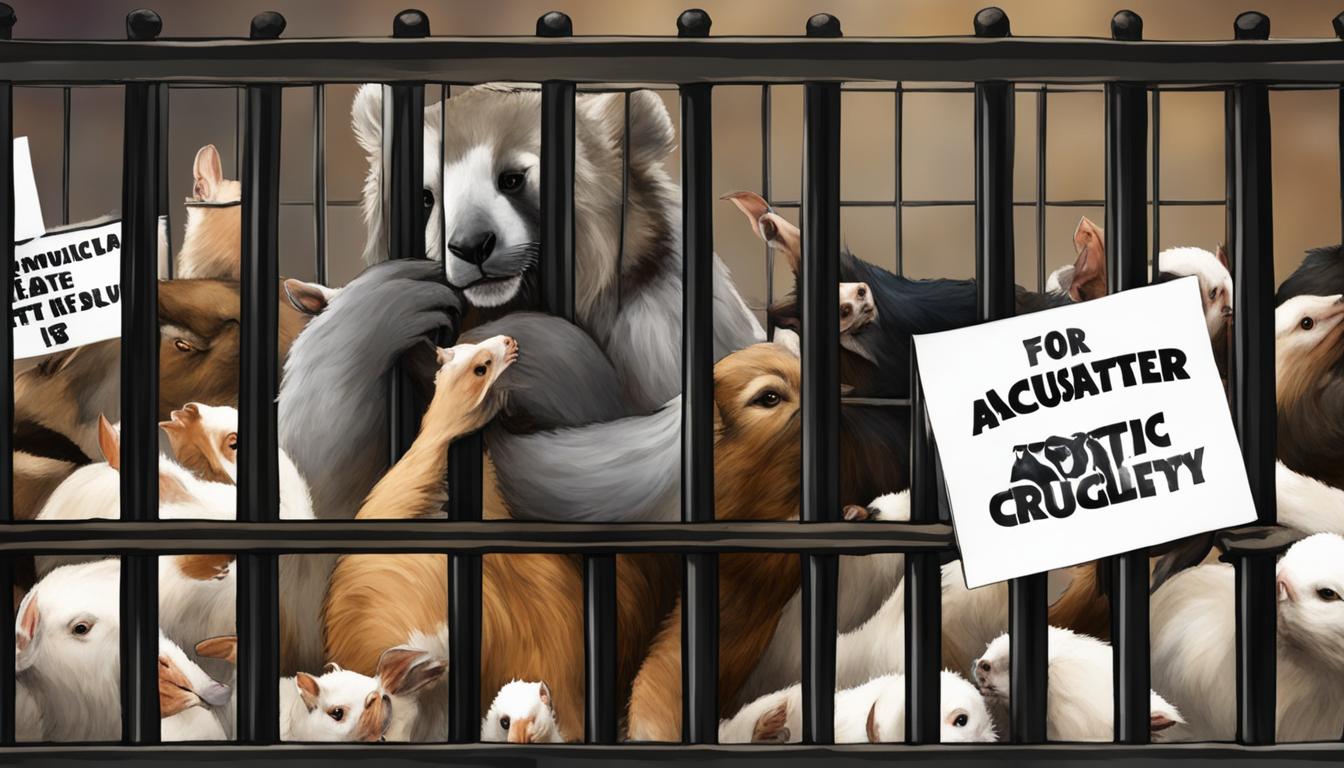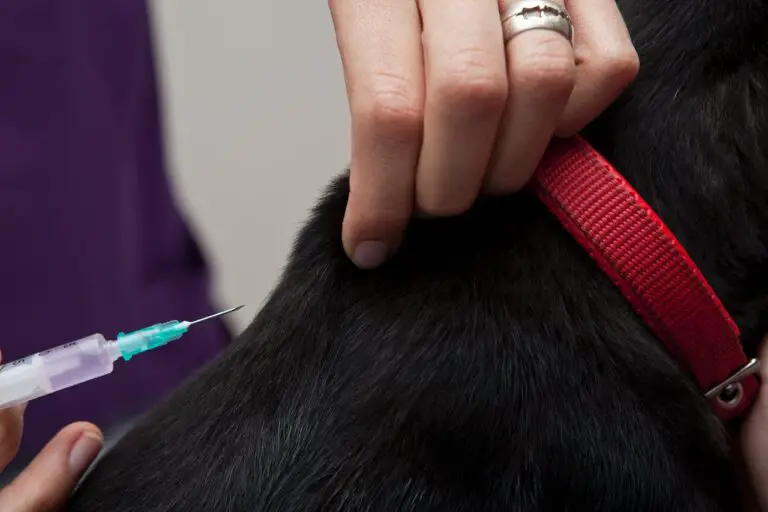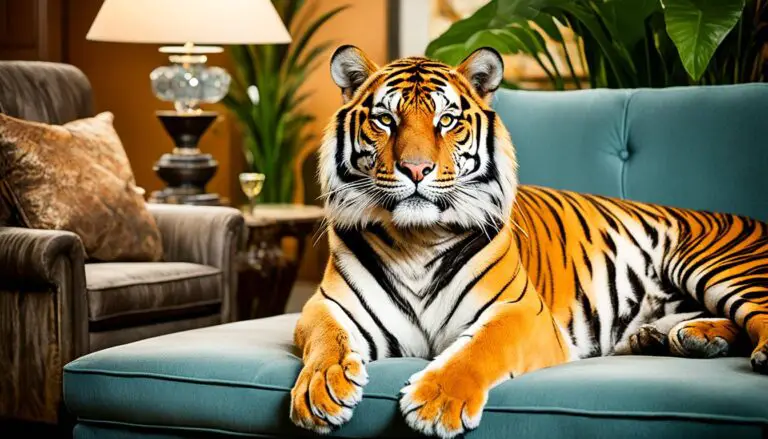Understanding Exotic Pet Cruelty Laws in the US
Exotic pet ownership has become a growing concern in the United States, raising important issues about animal rights, legislation, and the protection of these unique creatures. While some people may find the idea of owning an exotic pet appealing, it is crucial to understand the laws and regulations surrounding this practice to ensure the welfare of these animals and prevent illegal activities.
The illegal exotic pet trade, in particular, poses a significant threat to the well-being of exotic animals. This underground market fuels the demand for rare and endangered species, often subjecting them to cruel conditions during capture, transportation, and captivity. Recognizing the impact of this trade on animal welfare, authorities have implemented and enforced laws to combat this practice and protect these vulnerable creatures.
Legislation on exotic pets varies across different states in the US. Some states have strict regulations in place, including bans on the private ownership of certain exotic animals. Other states have licensing schemes that require individuals to meet specific criteria to legally own an exotic pet. The aim of these laws is to ensure the safety of the public, preserve public health, and safeguard the welfare of exotic animals.
Furthermore, raising awareness about the risks and responsibilities of owning exotic pets is crucial. Owners must understand the unique needs and behaviors of these animals to provide them with adequate care and prevent potential harm to themselves and others. Education and outreach programs play an important role in promoting responsible pet ownership and discouraging the illegal trade of exotic animals.
Key Takeaways
- Exotic pet ownership in the US raises concerns about animal rights, legislation, and ensuring the welfare of these unique creatures.
- The illegal exotic pet trade poses a significant threat to the well-being of exotic animals and is addressed through laws and regulations.
- States have implemented various regulations, including bans and licensing schemes, to regulate the ownership of exotic pets.
- Education and outreach programs are essential in promoting responsible pet ownership and discouraging the illegal trade of exotic animals.
- Understanding the risks and responsibilities of owning an exotic pet is crucial to provide adequate care and prevent harm to both animals and humans.
Policy Concerns of Exotic Pet Ownership
The ownership of exotic pets raises significant concerns related to public safety, public health, and animal welfare. These unique animals often pose a special risk due to their size and potentially dangerous behavior. Incidents of attacks or escapes involving exotic pets have resulted in serious injuries and even fatalities. Additionally, the transmission of zoonotic diseases from animals to humans presents a significant health risk.
To address these concerns, several states have implemented regulations on exotic pet ownership. Some states have banned private wildlife possession altogether or partially banned specific exotic animals. Other states have established licensing schemes for individuals who wish to own exotic pets, while some have limited or no regulations in place.
The enforcement of exotic pet ownership laws and regulations varies across states, as does the severity of penalties for exotic pet cruelty. Penalties can range from fines to imprisonment, reflecting the importance placed on preventing the abuse and mistreatment of these unique creatures.
Preventing Abuse and Ensuring Animal Welfare
The primary goal of exotic pet ownership regulations is to prevent the abuse and mistreatment of these fascinating animals. By implementing rules and restrictions, governments aim to ensure the well-being of exotic pets and protect them from potential harm. Animal welfare legislation and the enforcement of animal cruelty laws play a crucial role in safeguarding the rights and welfare of these creatures.
“The regulations aim to address the policy concerns surrounding exotic pet ownership, such as public safety, public health, and animal welfare.”
Enforcing Animal Cruelty Laws: A Complex Challenge
Enforcing animal cruelty laws related to exotic pet ownership can be a complex challenge. Due to the diverse range of exotic animals and their unique care requirements, law enforcement agencies and animal control authorities must possess specialized knowledge and resources. Collaboration between government authorities, animal welfare organizations, and the community is essential for effective enforcement and the identification of potential cases of abuse.
- Education and Awareness: Raising public awareness about the proper care and responsible ownership of exotic pets is crucial to prevent abuse and mistreatment. Educating potential owners about the specific needs and challenges associated with exotic pet ownership can help reduce instances of neglect or cruelty.
- Strict Regulation and Licensing: Establishing comprehensive regulations and licensing schemes is vital to ensure that only qualified individuals can own and care for exotic pets. Mandatory inspections and ongoing monitoring can help identify cases of abuse and neglect.
- Investigation and Prosecution: Prompt investigation and prosecution of alleged cases of exotic pet cruelty are necessary to hold perpetrators accountable and deter potential offenders. Collaboration between law enforcement agencies, animal welfare organizations, and legal authorities can help ensure a thorough investigation and prosecution process.
Efforts to enforce animal cruelty laws and regulate exotic pet ownership are ongoing, with the aim of protecting these extraordinary creatures from abuse and providing them with the care they need to thrive in a safe environment.

Federal Laws and Effects on Exotic Pet Ownership
While the majority of regulations regarding exotic pet ownership are implemented at the state level, there are several important federal laws that also apply. These laws have a significant impact on private ownership of exotic pets and the transportation of these animals.
The Animal Welfare Act, established in 1966, sets minimum standards for the handling, care, treatment, and transportation of certain animals. This includes animals kept at zoos and used in laboratories. The Act also explicitly prohibits dog fighting and cockfighting, promoting animal welfare and preventing cruelty.
Another federal law that plays a role in regulating exotic pet ownership is the “28 Hour Law.” This law requires vehicles transporting certain animals for slaughter to provide them with exercise, food, and water every 28 hours. The intention is to protect the well-being of these animals during transportation.
The Humane Methods of Livestock Slaughter Act is another federal law that impacts exotic pet ownership. It mandates that animals be stunned before slaughter to minimize pain and promote more humane treatment.
In addition to these laws, the PACT Act (Preventing Animal Cruelty and Torture Act), signed into law in 2019, makes certain forms of animal cruelty a federal crime. This act ensures that those who mistreat animals, including exotic pets, can be held accountable under federal law.
Effects of Federal Laws on Private Ownership
When it comes to the effects of federal laws on private ownership of exotic pets, these regulations help set a baseline of care and treatment. The Animal Welfare Act, for example, establishes minimum standards that all pet owners, including those with exotic pets, must meet. This helps ensure that animals are provided with proper care, reducing the risk of mistreatment or neglect.
The “28 Hour Law” is particularly significant for private owners who transport exotic animals. This law ensures that animals being moved for slaughter receive necessary provisions and are not subjected to undue stress or harm during transportation.
Overall, federal laws on exotic pet ownership directly impact private owners, promoting responsible care and minimizing the risk of animal cruelty or mistreatment.
Regulation of Exotic Animal Transportation
One area where federal laws have a significant impact is the regulation of exotic animal transportation. These laws, such as the Animal Welfare Act and the “28 Hour Law,” establish guidelines and requirements for transporting exotic animals.
The Animal Welfare Act, in particular, sets standards for the transportation of animals used in zoos and laboratories. This ensures that these animals are transported under conditions that prioritize their well-being and prevent unnecessary stress or harm during transit.
By implementing federal regulations, authorities can monitor and enforce safe and humane transportation practices to protect exotic animals from unnecessary suffering.
| Key Federal Laws on Exotic Pet Ownership | Effects on Private Ownership | Regulation of Animal Transportation |
|---|---|---|
| Animal Welfare Act | Sets minimum standards for care and treatment of exotic pets | Establishes guidelines for transporting animals, including exotic pets |
| 28 Hour Law | Requires provision of exercise, food, and water during transportation | Safeguards against mistreatment of animals during transportation |
| Humane Methods of Livestock Slaughter Act | Promotes humane treatment of animals, including exotic pets | N/A |
| PACT Act | Makes certain forms of animal cruelty a federal crime | N/A |
State Laws and Regulatory Schemes
State laws play a significant role in regulating exotic pet ownership. Different states have adopted various regulatory schemes to ensure the welfare of exotic animals and prevent their mistreatment and abuse. These regulatory measures include:
- Bans on private wildlife possession
- Partial bans on specific exotic animals
- Licensing schemes for owning exotic or wild animals
- Miscellaneous regulations or no regulations at all
- Local regulations
The enforcement of these laws and regulations varies across states. In response to incidents like the Ohio Zoo Massacre, some states have implemented stricter measures to protect both the public and exotic animals. The aim of these laws is to strike a balance between allowing responsible ownership and preventing the potential harm that may arise from the possession of exotic animals.
The Impact of State Laws and Bans
“We believe that protecting wildlife and ensuring their humane treatment is a responsibility we owe to these unique creatures.”
State laws on exotic pet ownership have had a direct impact on reducing the risks associated with private possession of wildlife. Bans on private wildlife possession have been implemented by several states, including California, New York, and Washington. These bans prohibit the ownership of certain exotic animals without proper permits. By limiting ownership to qualified individuals, these laws aim to prevent the illegal trade of exotic animals and ensure that only responsible owners provide the necessary care and habitats for these creatures.
Moreover, partial bans on specific exotic animals are in place in other states, considering the potential dangers posed by certain species. For example, some states have prohibited the ownership of large cats like lions and tigers due to the high risks associated with their possessors’ lack of expertise and the animals’ size and strength.
Licensing Schemes for Exotic Pet Ownership
To promote responsible ownership, several states have established licensing schemes for owning exotic or wild animals. These schemes require individuals to meet certain requirements, such as demonstrating knowledge of the animal’s needs, providing appropriate enclosures, and showing the ability to care for the animal’s physical and behavioral needs. Licenses are generally issued by designated authorities, such as state wildlife agencies or veterinary boards, to ensure the welfare and proper husbandry of exotic pets.
A licensing scheme helps regulate the ownership of exotic animals, ensuring that only qualified individuals with the necessary resources and knowledge can properly care for these unique creatures. By implementing appropriate requirements and periodic inspections, states can mitigate the risks associated with owning exotic pets and safeguard the welfare of both the animals and the public.

| State | Ban on Private Wildlife Possession | Partial Ban on Specific Exotic Animals | Licensing Scheme for Exotic Pet Ownership |
|---|---|---|---|
| California | Yes | No | Yes |
| New York | Yes | No | Yes |
| Florida | No | No | Yes |
| Ohio | Yes | Yes | No |
The table above provides a summary of the regulations in selected states. It is important to note that regulations can change over time, so individuals considering exotic pet ownership should always consult their state’s current laws and requirements.
Conclusion
Exotic pet cruelty laws in the US are crucial for ensuring the legal protection and welfare of these unique and often dangerous animals. These regulations address important policy concerns related to public safety, public health, and animal welfare. By implementing federal, state, and local laws, authorities aim to regulate the ownership and care of exotic pets.
Although enforcing these laws can be challenging, the ultimate goal is to prevent animal abuse and mistreatment of exotic pets. Continued efforts must be made to raise awareness about the importance of these laws and to strengthen legislation where necessary. Furthermore, strict enforcement of existing regulations is essential to safeguard the well-being of exotic animals.
By providing legal protection for exotic pets, these laws contribute to the preservation of their species and minimize the risks associated with their ownership. Through responsible pet ownership and adherence to animal welfare standards, we can ensure a safer and more humane environment for these extraordinary creatures, both in captivity and in the wild.
FAQ
What are exotic pet cruelty laws?
Exotic pet cruelty laws are regulations that aim to protect the welfare of exotic animals kept as pets. These laws address concerns regarding the mistreatment and abuse of these unique creatures.
What is the purpose of legislation on exotic pets?
Legislation on exotic pets serves to regulate the ownership and care of these animals, with the goal of ensuring public safety, public health, and animal welfare.
Why is the illegal exotic pet trade a concern?
The illegal exotic pet trade is a concern because it contributes to the mistreatment and abuse of exotic animals, often resulting in their suffering and compromised welfare.
How do laws protect exotic animals?
Laws protect exotic animals by setting regulations on their ownership, care, and transportation. These laws aim to prevent cruelty and ensure the well-being of these unique creatures.
What are the legal penalties for exotic pet cruelty?
The legal penalties for exotic pet cruelty can vary, ranging from fines to imprisonment. The severity of the penalties depends on the specific laws and regulations in place.
How are animal welfare regulations enforced?
Animal welfare regulations are enforced through various means, including inspections, investigations, and legal actions. Government agencies, such as animal control, play a role in enforcing these regulations.
What is the impact of federal laws on exotic pet ownership?
Federal laws on exotic pet ownership set minimum standards for the handling, care, treatment, and transportation of certain animals. These laws aim to ensure the welfare of exotic pets and regulate specific aspects of their ownership.
What are the regulatory schemes for exotic pet ownership at the state level?
The regulatory schemes for exotic pet ownership at the state level vary. Some states have implemented bans on private wildlife possession, while others have licensing schemes for owning exotic pets or miscellaneous regulations.
How can legal protection for exotic pets be improved?
Legal protection for exotic pets can be improved through raising awareness, strengthening legislation, and enforcing existing laws. Continued efforts are necessary to prevent the mistreatment and abuse of these unique animals.
Why is preventing animal abuse important?
Preventing animal abuse, including the mistreatment of exotic pets, is important to ensure the welfare and well-being of animals. It is our responsibility to protect and care for these creatures.
What are the laws against mistreatment of exotic pets?
Laws against the mistreatment of exotic pets vary across states and federal regulations. These laws aim to prevent cruelty and provide legal consequences for individuals who mistreat or abuse exotic animals.
Source Links
- https://www.animallaw.info/article/detailed-discussion-exotic-pet-laws-update
- https://www.animallaw.info/intro/exotic-pet-laws
- https://aldf.org/article/laws-that-protect-animals/
Peter Stones is the founder of Exotic Pets Place, the leading online resource for exotic pet care information.
With over 10 years of hands-on exotic pet ownership experience, he is deeply passionate about sharing his expertise to help others properly care for their unusual pets.
When he's not writing extensively researched articles or connecting with fellow exotic pet enthusiasts worldwide, you can find Peter at home tending to his own beloved menagerie of exotic animals.







